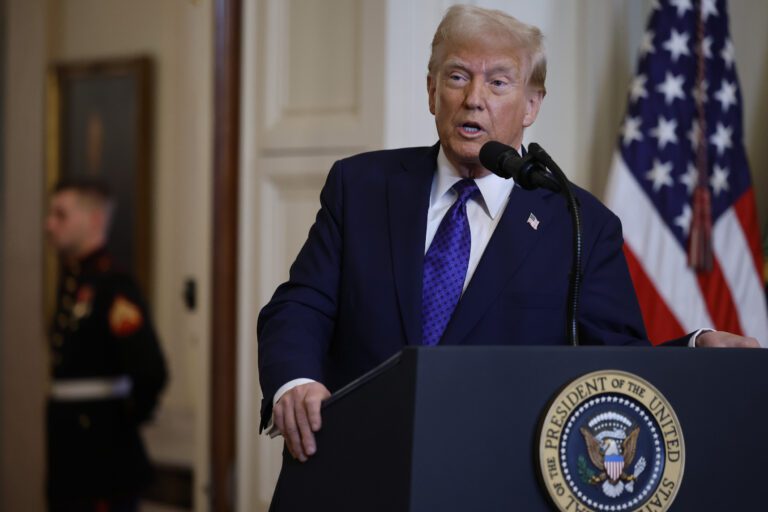Donald Trump has announced that on Monday, the United States will implement a 25% tariff on all steel and aluminum imports, affecting key trading partners including Canada and Mexico. This significant policy shift reflects ongoing tensions in international trade as Trump prepares to unveil more import duties later in the week. During a recent flight to New Orleans, President Trump confirmed these tariffs, stating, “Any steel coming into the United States is going to have a 25% tariff.” When probed further about aluminum, he quickly added, “aluminum, too” would also be included in these import penalties.
In addition to these tariffs, Trump plans to introduce reciprocal tariffs, potentially announced on Tuesday or Wednesday. This concept entails levying import duties on products from countries that have implemented their own tariffs against U.S. goods. He emphasized the need for fairness, stating, “If they are charging us 130% and we’re charging them nothing, it’s not going to stay that way.” Trump’s willingness to impose these tariffs comes as part of a broader strategy that he has employed throughout his presidency. Unlike his earlier term, where he predominantly focused on tax cuts and deregulation, he now views import taxes as a method both to extract concessions on issues such as immigration and as a revenue source to mitigate the federal budget deficit.
The market has already reacted to the looming tariffs; on Friday, stock prices fell following the announcement and a decline in consumer sentiment linked to growing concerns about tariffs. Surveys indicate that many Americans are bracing for increased inflation as a direct effect of these trade measures. While specific details about the implementation of the steel and aluminum duties were not disclosed, it is worth noting that Trump had previously paused similar tariffs on Canada and Mexico just a week prior. For context, he had already initiated a 10% duty on imports from China, showcasing a complex and evolving trade landscape. Moreover, Trump mentioned his intention to delay tariffs on small packages—often shipped by fast-fashion brands like Temu and Shein—until customs officials can devise an effective enforcement strategy, as these packages were previously exempt from tariffs.
International reactions have been swift, especially from impacted global trading partners. South Korea’s acting president, Choi Sang-mok, convened a meeting with senior officials to evaluate the potential repercussions of Trump’s steel and aluminum tariffs on local industries. With South Korea having exported approximately $4.8 billion in steel to the U.S. from January to November of the previous year—accounting for 14% of its global steel exports—this announcement has significant implications for the nation’s economy. As the situation develops, stakeholders across various sectors will be closely monitoring the effects of these tariffs and the subsequent responses from the global trading community.
For further details, clarification, contributions or any concerns regarding this article, please feel free to reach out to us at editorial@tax.news. We value your feedback and are committed to providing accurate and timely information. Please note that all inquiries will be handled in accordance with our privacy policy



